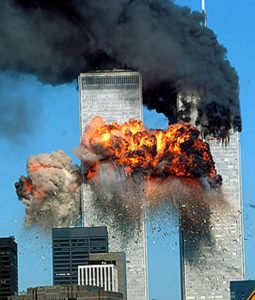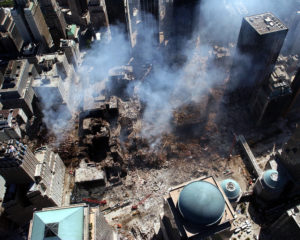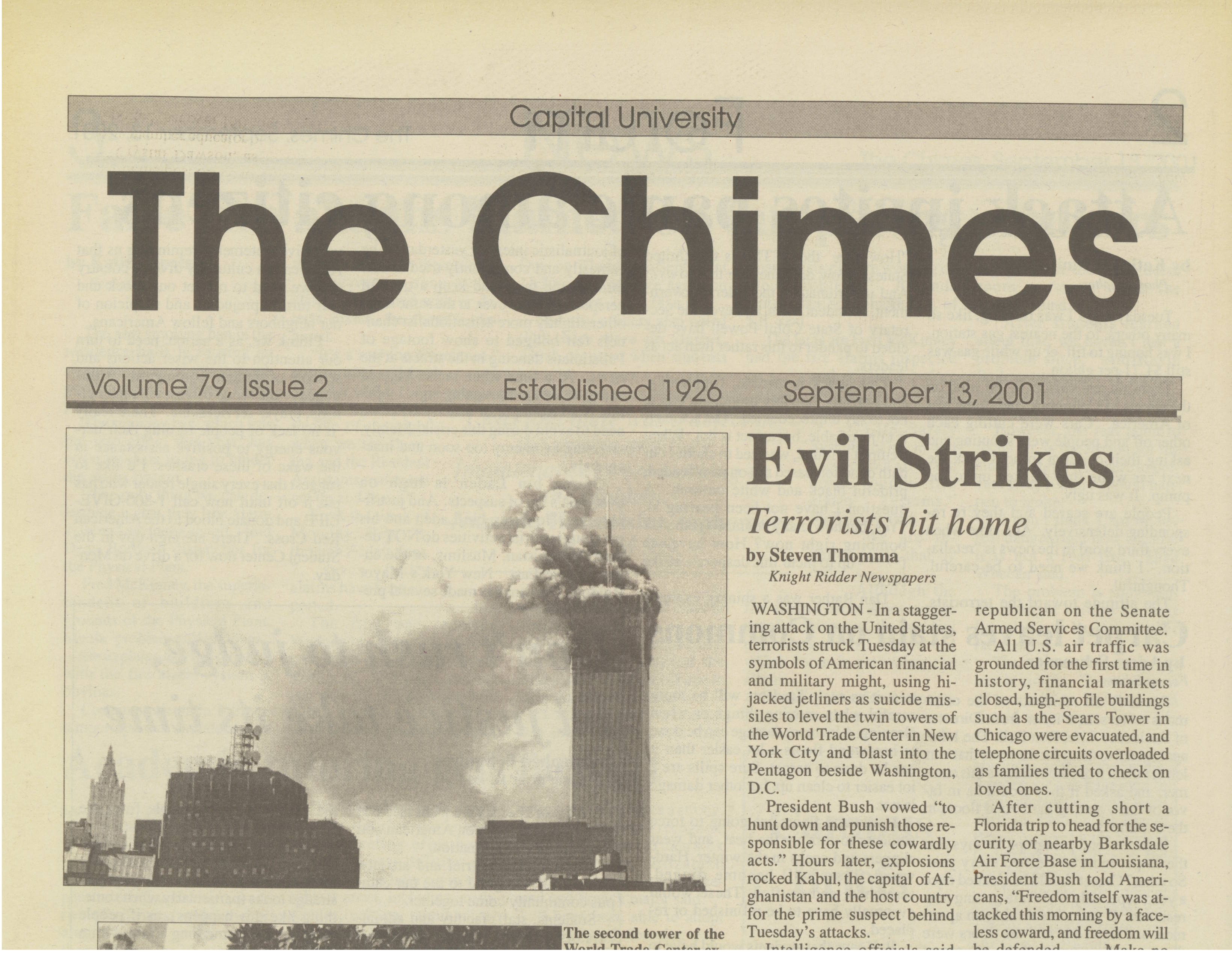
The morning was comfortable and sunny as 8 million New Yorkers went about their Tuesday routines. Before the sun had crossed a third of the sky, the city shook with the force of a small earthquake. Those on the street looked up to see a commercial airliner gliding a mere thousand feet above. Within seconds, it collided with North Tower of the World Trade Center.
Panic gripped the city as flame and smoke bellowed from the tower. An unprecedented mobilization of emergency responders occurred, and the mayor himself headed for the site. News agencies all over the world rushed to cover the wreckage. People sat glued to their televisions, awaiting an explanation of what had happened.
Not 20 minutes after the first airliner collided with the North Tower, a second flew directly into the South Tower. The conclusion seemed clear: this was no accident. As the fires raged, thousands struggled to get to safety. Some of those trapped on the upper floors decided to jump instead of burn to death.
It was soon learned that a third airliner had struck the Pentagon, and a nation at peace became a nation at war. Flights across the country were grounded, and the president and vice president were moved to safety. Many school administrators suspended their classes and sent students home. F-16s were scrambled to intercept any aircraft refusing to land.
Despite their efforts, New York City’s first responders were thrown another curve ball. After less than an hour on fire, the South Tower collapsed due to weakening of its steel frame. The surrounding streets were blanketed in debris and ash. The North Tower followed suit, and reports circulated of an airliner that crashed in Pennsylvania after passengers attempted to retake it from the hijackers.
Search and rescue efforts continued for weeks, and the death toll, excluding the hijackers, totaled 2,977.
Sunday was the fifteenth anniversary of the Sept. 11 terrorist attacks. Since their conclusion, thousands of documentaries, articles and dissertations have been authored covering them, the United States has invaded Afghanistan and Iraq as part of a global war on terror, and air travel has lost any feeling of innocence.
For many college-aged Americans, these abhorrent events exist in that ill-defined gap between first-hand memory and what we were taught in history class.
I remember being picked up from school by my mother, who attempted to mask her worried mind behind a smile. The drive home was uncomfortable as she attempted to explain what had happened and why she could not leave me at school.
For the rest of the day, my family sat in front of the the television, watching a cast of reporters describe the efforts of rescue workers. In the days that followed, the event continued to dominate the evening television.
At the time, I had only a surface-level understanding of what had happened, and like most Americans, I assumed the worst was over.
The years went by, and the events of Sept. 11 periodically reemerged, either in passing reference, news retrospectives, or brief school lessons, but it was not until high school that I fully understood what had happened.
By then, the United States had been some ten years engaged in a global war on terror, which had cost thousands of American lives. President Obama had begun a U.S. withdraw and was soon able to announce the killing of Osama bin Laden, the attacks’ chief orchestrator.
While the announcement may have delivered satisfaction for some, it was hardly the end of the story.
The Sept. 11 terrorist attacks still live in infamy, but their importance extends far beyond the single day. While they began as an attack against the United States of America, they came to change much of the world irreparably.

Conflict has consumed the Middle East, creating an environment in which acts of terror are rationalized and violence is the only avenue for change. In this
environment, new terrorist groups have formed, the most notable being the self-declared Islamic State (IS).
Outside of the cruelty exhibited by IS in Iraq and Syria, individuals evoking their name have attacked civilians in multiple countries, most recently in Nice, France, and Orlando, Florida.
Public officials across the West are calling for stricter security and greater military action in the Middle East, all while millions of refugees flee the war-torn region for the relative safety of nations that view them as potential threats.
Just this week, two often rivals, the U.S. and Russia, have come together in mutual cooperation to initiate a ceasefire between their respective allies in Syria. While the effect remains to be seen, the goal is to have all local forces work together to counter radical terrorist groups such as IS.
National security remains a consistently discussed topic between presidential candidates Hillary Clinton and Donald Trump, and few Americans feel any safer today than they did fifteen years ago.
Conflict grips the modern world, and Sept. 11, 2001, while not the start, was definitely a major spark. We are at a crossroads, and we must decide as a nation and as a world whether or not we want to continue the current cycle of political, ethnic, and religious violence that threatens to tear our world apart.

